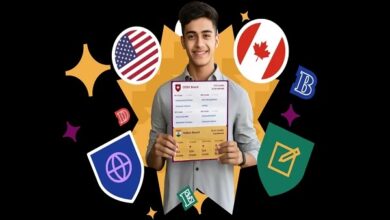What Are the Benefits of Language Proficiency Tests in Students’ Lives?

Language proficiency is a vital skill in our increasingly connected world. In a period where communication knows no boundaries, the capability to understand and speak multiple languages has come to be a significant asset. For scholars, in particular, learning language proficiency can be a game- changer. It not only enhances their academic prospects but also opens up a world of particular and professional openings. One way to gauge and validate this proficiency is through language proficiency tests.
In this comprehensive exploration, we’ll discuss the various benefits of language proficiency tests in students’ lives, from academic achievements to global employability and personal enrichment.
Academic Advancement
1. University Admissions Language proficiency tests are frequently a requirement for transnational scholars seeking admission to universities in countries where the primary language of instruction isn’t their native language. For example, the Test of English as a Foreign Language and International English Language Testing System are extensively honoured by universities in English- speaking countries. These tests ensure that incoming scholars have the language skills necessary to succeed in a gruelling academic terrain.
2. Scholarship openings and numerous literacy for transnational scholars bear evidence of language proficiency. High scores on language proficiency tests can make scholars eligible for a variety of literacy, reducing the fiscal burden of their education. This literacy can be offered by universities, government organisations, or private foundations.
Global Employability
1. Competitive Edge in the Job Market: In an increasingly globalised job market, language skills are highly valued by employers. Multilingual employees can effectively communicate with international clients, partners, or colleagues, making them assets to companies with global operations. Proficiency in a second language can set students apart from their monolingual peers, providing a competitive edge in the job market.
2. International Career Opportunities: Language proficiency opens doors to international career opportunities. Graduates with language skills may find positions in fields such as translation, international business, diplomacy, tourism, and journalism. These careers often require the ability to navigate diverse linguistic and cultural landscapes.
Personal Enrichment and Cultural Understanding
1. Expanded Horizons: Learning a new language exposes students to different cultures, traditions, and perspectives. It broadens their horizons and encourages them to view the world through a more diverse lens. As they immerse themselves in a new language, students gain insights into the values, customs, and history of the people who speak it.
2. Enhanced Empathy: Understanding and speaking different languages can lead to increased empathy and cross-cultural sensitivity. Students who are proficient in multiple languages are better equipped to appreciate and respect cultural differences. This heightened awareness fosters empathy and a broader sense of global citizenship.
What are the Personal and Professional Development for Students?
Cognitive Benefits
Language proficiency isn’t only about effective communication but also about cognitive development. Learning and using multiple languages have been linked to cognitive advantages, including better problem- working skills, enhanced memory, and increased creativity. Multilingual scholars frequently parade advanced situations of cognitive inflexibility, which can profit their academic and professional hobbies.
Confidence Boost
Achieving proficiency in a new language is a significant accomplishment. It boosts scholars self confidence and self regard. This newfound confidence can extend to other areas of their lives, empowering them to take on challenges with a positive attitude.
How can you Start Preparing for Language Proficiency Tests?
Preparing for a language proficiency test requires dedication and a structured approach. Here are some tips for students to excel in their test preparations:
- Familiarise Yourself with the Test Format: Start by thoroughly understanding the test format. Each proficiency test has specific sections, such as reading, writing, listening, and speaking, and follows a particular structure. Familiarity with the test format will help you prepare effectively
- Use Official Materials: Most language proficiency tests provide official preparation materials, including sample questions, practice tests, and study guides. These materials closely mimic the actual test format and content, providing you with a realistic preview of what to expect. Utilise these resources to familiarise yourself with the types of questions and tasks you’ll encounter on the test.
- Seek Feedback and Guidance: Consider enrolling in a test preparation course or working with a tutor who specialises in the specific language proficiency test you plan to take. These professionals can provide valuable feedback on your performance, identify areas of improvement, and offer targeted strategies to boost your score. Their expertise can be instrumental in helping you achieve your desired proficiency level.
- Simulate Test Conditions: To prepare effectively, take practice tests under timed conditions to simulate the actual testing environment. This not only helps you get familiar with the time constraints but also reduces test anxiety, making you feel more confident on test day. Practising under test-like conditions can also help you fine-tune your time management skills.
- Build Vocabulary and Grammar Skills: English communication tests often include sections that assess vocabulary and grammar. To perform well in these sections, work on expanding your vocabulary and reinforcing your understanding of grammar rules. Read extensively in the language you are learning, listen to native speakers, and practice writing and speaking to improve your fluency.
- Develop Your Listening and Speaking Skills: For tests that include listening and speaking sections, focus on developing your listening comprehension and speaking abilities. Engage in activities such as watching movies or TV shows in the target language, listening to podcasts, and engaging in conversations with native speakers. The more exposure you have to spoken language, the more comfortable you’ll become with listening and speaking in real-world situations.
Conclusion
Language proficiency tests play a pivotal role in students’ lives by serving as gateways to academic success, global employability, personal enrichment, and personal and professional development. These tests offer a standardised and objective measure of language skills, making them valuable credentials for academic admissions and employment opportunities worldwide. As students prepare for language proficiency tests, they embark on a transformative learning experience that challenges them to embrace linguistic diversity and expand their cultural horizons. The journey may be demanding, but the rewards—both academically and personally—are well worth the effort.
So, whether you’re aiming to pursue higher education abroad, advance your career, or simply enrich your life through language learning, language proficiency tests are your trusted companions on this exciting and fulfilling voyage. And to improve this I want you to visit Mercer | Mettl. Mercer | Mettl’s commitment to excellence in language assessment remains at the forefront of talent and education solutions.




